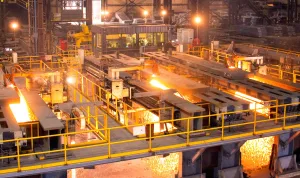What is the LME’s stance on market speculation?

What is the LME's stance on market speculation?
Market speculation, the practice of buying and selling financial instruments with the aim of profiting from price movements, is a common feature of financial markets, including the London Metal Exchange (LME). While speculation can contribute to market liquidity and price discovery, it also raises questions about market stability, fairness, and integrity. The LME, as a leading global metals market, has established a nuanced stance on market speculation, balancing the need for market efficiency with concerns about excessive speculation and its potential impact on market participants and the broader economy. In this comprehensive guide, we explore the LME’s perspective on market speculation, providing insights into its policies, regulations, and implications for traders, investors, and industry stakeholders.
1. Market Efficiency and Liquidity
At its core, the LME views speculation as a natural and necessary component of market dynamics, contributing to market efficiency and liquidity. Speculators play a vital role in bridging the gap between buyers and sellers, providing liquidity by trading actively in the market and facilitating price discovery through their trading activities. By participating in trading activities, speculators help ensure that market prices reflect available information and market sentiment, enabling market participants to make informed decisions about buying, selling, and hedging metal products.
2. Price Discovery and Risk Management
Speculation on the LME serves as a mechanism for price discovery, allowing market participants to assess market conditions, supply-demand dynamics, and macroeconomic trends. Speculative trading activity provides valuable information about market sentiment and expectations, helping traders and investors gauge price trends and assess risk levels. Moreover, speculation enables market participants to manage price risk by entering into futures contracts and options contracts to hedge against adverse price movements in the underlying metal prices. By engaging in speculative trading, market participants can tailor their risk management strategies to their specific needs and market outlook.
3. Regulation and Oversight
While the LME acknowledges the benefits of speculation in facilitating market functioning and risk management, it also recognizes the need for regulatory oversight to prevent excessive speculation and market manipulation. The exchange has implemented robust regulations and surveillance mechanisms to monitor trading activities, detect potential abuses, and maintain market integrity. Market surveillance teams monitor trading patterns, order flows, and market data to identify irregularities and suspicious activities, while regulatory authorities enforce compliance with trading rules and investigate allegations of market manipulation or misconduct.
4. Mitigating Systemic Risks
The LME remains vigilant about the potential systemic risks associated with excessive speculation and market volatility. While speculation can enhance market liquidity and price discovery, excessive speculation may lead to heightened volatility, price distortions, and systemic risks that could destabilize financial markets and harm market participants. The exchange employs various risk management tools and measures to mitigate systemic risks, including position limits, margin requirements, and stress testing, to ensure that market participants operate within prudent risk parameters and contribute to market stability and resilience.
Conclusion: Striking a Balance
In conclusion, the London Metal Exchange (LME) recognizes the role of speculation in driving market efficiency, price discovery, and risk management in the metals market. While speculation is inherent in market dynamics, the LME remains committed to fostering a fair, transparent, and orderly trading environment by balancing the benefits of speculation with the need for regulatory oversight and risk management. By promoting market integrity, mitigating systemic risks, and safeguarding investor interests, the LME seeks to maintain trust and confidence in the integrity and stability of its market operations amidst the complexities of market speculation.
By promoting market integrity, mitigating systemic risks, and safeguarding investor interests, the LME seeks to maintain trust and confidence in the integrity and stability of its market operations amidst the complexities of market speculation. Whether it’s facilitating price discovery, managing risk, or ensuring regulatory compliance, speculation remains a fundamental aspect of the LME’s market ecosystem, shaping market dynamics and providing opportunities for traders, investors, and industry stakeholders to navigate the complexities of the global metals market.



